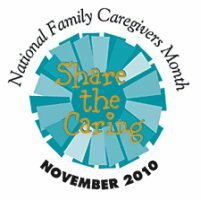Watching a family me mber struggle pains us all, especially when there is little we can do personally to alleviate their ailment. Unfortunately one of the most common issues facing the aging population is being diagnosed with dementia, cognitive impairment, or Alzheimer’s disease. Alzheimer’s disease is the most common form of dementia. Alzheimer’s causes a person to gradually loss his/her ability to learn, reason, and communicate. The disease is both progressive and irreversible.
mber struggle pains us all, especially when there is little we can do personally to alleviate their ailment. Unfortunately one of the most common issues facing the aging population is being diagnosed with dementia, cognitive impairment, or Alzheimer’s disease. Alzheimer’s disease is the most common form of dementia. Alzheimer’s causes a person to gradually loss his/her ability to learn, reason, and communicate. The disease is both progressive and irreversible.
Anyone caring for a family member diagnosed with Alzheimer’s disease knows this challenging task requires sacrifice and can quickly become overwhelming. A person with Alzheimer’s disease can act unpredictably and each day brings new demands on the caregiver. Taking care of a dementia patient requires: acceptance, understanding, time, effort, and patience. Below we outline the importance of these five attributes for anyone that has just discovered a family member might have Alzheimer’s.
When a love one shows symptoms of having Alzheimer’s, it is typical that the caregiver might go through stages of denial, anger, depression and exhaustion. It is not easy to see someone you love deteriorate. This is why acceptance is an important step in the process for the caregiver, because regrettably the road doesn’t get any easier.
Understanding is the next step. Learning as much as you can about cognitive impairment becomes very important. Sufferers of Alzheimer’s lose the capacity to understand their condition as they become more disoriented. It becomes the task of the caregiver to become knowledgeable about the disease.
Give yourself time. Time is needed because Alzheimer’s patients become dependent on you. They require help when waking up, going to bed, eating and going to the bathroom. Once the disease progresses care giving can quickly become a full-time job.
Alzheimer’s sufferers become confused, disoriented, cognitive functions begin to slow down and behavior becomes erratic. For instance, it isn’t unusual for dementia patients to mix odd substances with other foods and think it is alright to eat the mixture. Dealing with all the issues that will arise takes effort on part of the caregiver.
Patience probably goes without saying, but it is worth mentioning because it is the most important. Having a family member or loved one suffer for Alzheimer’s is hard work. There will be times when they will ask strange questions or do things that might get irritating. When the caregiver gets annoyed it usually only make things worse.
November is National Family Caregivers Month, a time to honor the efforts of family caregivers and the loving sacrifices they make for the ones they cherish. If you are interested in more information on taking care of someone suffering from Alzheimer’s please visit the National Institute on Aging Caregiver Guide.